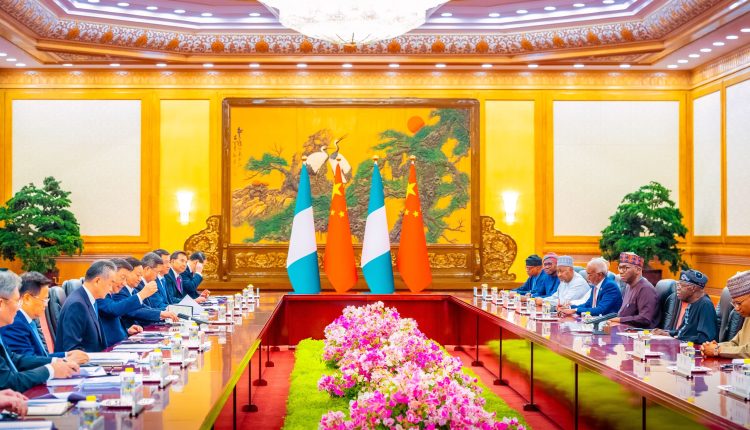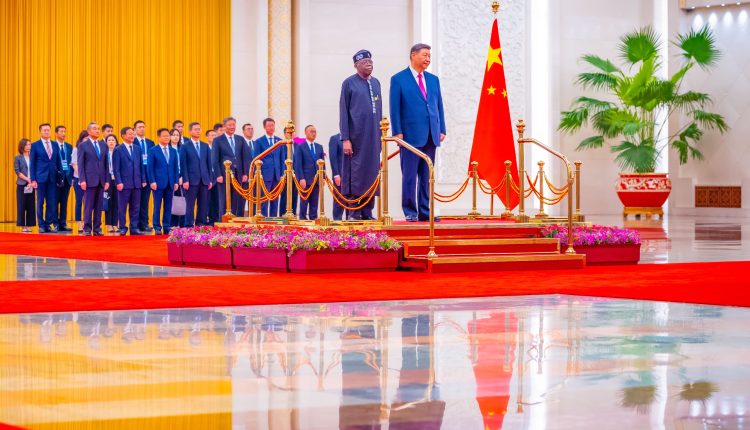Nigeria would become China’s leading trading partner in Africa, with bilateral trade volume exceeding $23 billion, according to Nigeria’s Minister of Foreign Affairs, Yusuf Tuggar. The announcement followed the signing of several Memorandums of Understanding (MOUs) between Nigeria and China, aimed at bolstering infrastructure development and expanding economic cooperation.
During a visit to Beijing, Tuggar highlighted the significance of these agreements, which mark a transition from a strategic partnership to a comprehensive collaboration between the two nations. China is eager to increase its investments in Nigeria’s finished products and infrastructure, which is expected to boost job creation and stimulate the local economy.
“They want to buy more of our finished products so they are very serious about Nigeria we are their second largest trading partner in Africa we are only behind South Africa. Trade volume is about 23 billion dollars they want to do much more so Nigeria is to become the number one trading partner with China,” Tuggar said.

Among the notable agreements is a proposal by Huawei to establish two major technology data storage centers in Nigeria, a move that is anticipated to create significant employment opportunities for Nigerian youth.
The partnership also extends to the energy sector, where Nigeria plans to leverage China’s expertise in electricity supply and nuclear energy. These initiatives aim to enhance power generation, stabilise the national grid, and further empower nuclear technology in the country.
In addition to infrastructure and energy, the MOUs cover sectors such as communication and trade. Tuggar signed an agreement facilitating the export of shelled peanuts from Nigeria, alongside other deals aimed at enhancing digital communications and media collaboration, including an agreement between the Nigerian Television Authority (NTA) and Chinese news networks.
The agreements also involve key state-level projects. Governors from Lagos and Kaduna have signed MOUs with Chinese companies for significant construction projects, including bridge development and the establishment of technology hubs.


